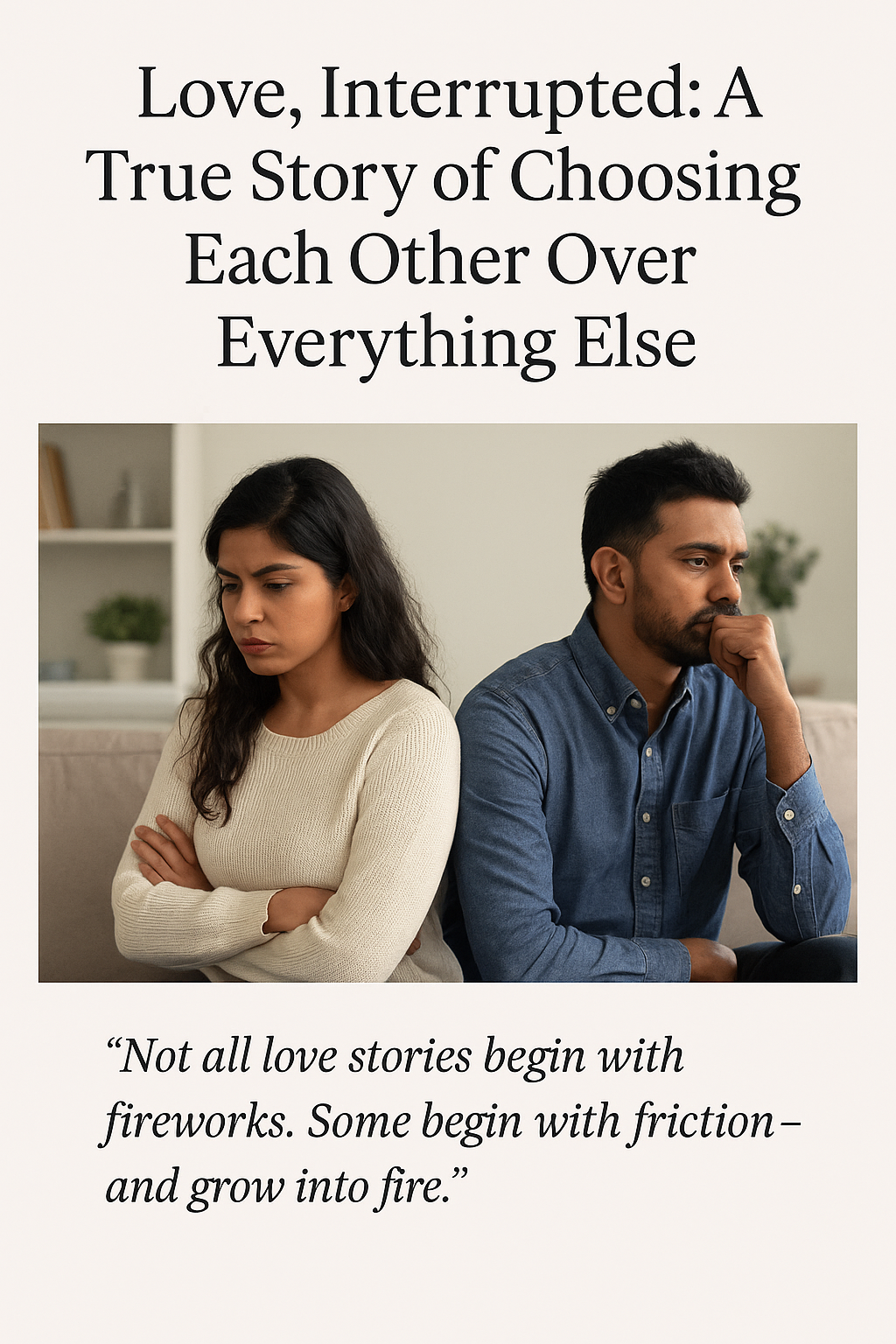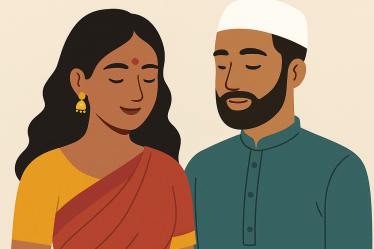
A tale of love, family, and everything in between
When Maya met Arjun, it wasn’t love at first sight—it was resistance at first sight. She was fiercely independent, career-focused, and fresh out of a bad breakup. Arjun, on the other hand, was charming, emotionally open, and came from a conservative, tightly-knit family that believed love was only real if it aligned with tradition.
They met at a mutual friend’s housewarming party. Arjun noticed her first—her laughter, loud and unfiltered, her sharp wit, her guarded eyes. He tried to start a conversation; she shut it down with a sarcastic comment. He smiled anyway. He knew she was different.
“Not all love stories begin with fireworks. Some begin with friction—and grow into fire.”
The Slow Burn
Over the next few months, they kept running into each other through friends. Slowly, Maya warmed up. She admired how Arjun never tried to “fix” her, unlike her ex. He listened—really listened—and challenged her when she tried to push him away. Their connection deepened, and the late-night phone calls turned into long walks, shared dreams, and silent comfort.
But things changed when Maya was invited to Arjun’s family home for Diwali.
The First Storm
Arjun’s family was polite but distant. His mother, a devout homemaker, saw Maya as “too modern.” She didn’t like that Maya wore jeans to a traditional event or that she openly voiced opinions on politics and gender roles at the dinner table. His father barely spoke to her. After they left, the verbal storm hit.
“You didn’t even try to respect them,” Arjun said in the car.
Maya blinked, stunned. “I was just being myself.”
“I know,” he replied. “But sometimes being yourself feels like you’re picking a fight.”
The argument that followed opened wounds neither of them knew they had. Maya accused him of not standing up for her. Arjun accused her of not being willing to compromise. They didn’t talk for days.
Torn Between Two Worlds
Still, love persisted. They made up, talked things through, even went to couples therapy for a while. But the pressure from Arjun’s family didn’t stop. His mother gave him ultimatums. “If you marry her, don’t expect us to be part of your life,” she said once, her voice sharp with finality.
Maya overheard this during a video call. That night, she packed her things without a word.
She left a note:
“I love you. But I will never make you choose. You shouldn’t have to.”
Arjun was devastated. He called, texted, even showed up at her apartment. But Maya stayed away. She needed space to reclaim herself—to not become someone she wasn’t just to be loved.
The Reunion
Six months passed. Maya poured herself into work, into healing. She dated casually but never seriously. One rainy evening, she got a message.
“Dad’s in the hospital. I just needed to talk to someone who feels like home. Can I call?”
It was Arjun.
They talked for two hours that night. Then again the next day. Slowly, they began rebuilding—without labels, without expectations. Just two people trying to understand each other again.
Arjun eventually moved out of his family home. Not in defiance, but in search of balance. His parents were hurt but started coming around, little by little. Maya, too, made room for growth—for understanding that compromise doesn’t mean losing your voice.
A Love Rewritten
Today, Maya and Arjun live together in a small flat filled with plants, mismatched furniture, and mutual respect. They’re not married—yet. But they’re building something stronger than tradition. A love that’s flawed, fought for, and fiercely honest.
And sometimes, when they sit on the balcony sipping chai, Arjun teases her about that first sarcastic comment at the housewarming party.
Maya always laughs.
Because love like theirs wasn’t easy.
But it was real.



